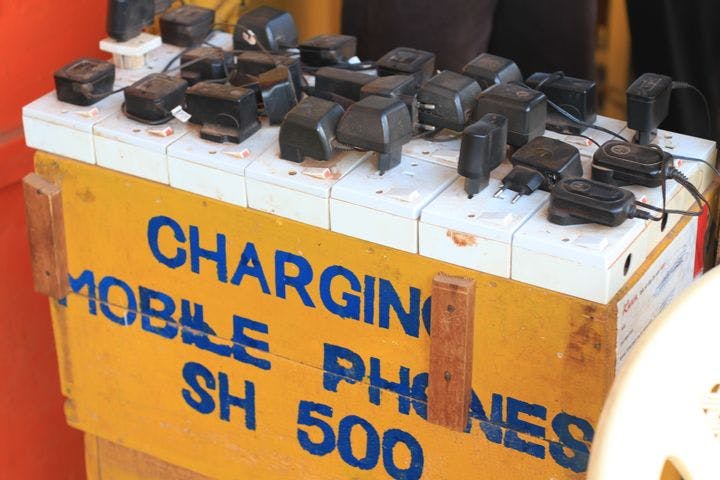Winter 2010
Mobile Monitoring
– The Wilson Quarterly
Rapidly increasing numbers of cell phones owners could be great news for those looking to fight corruption across Africa.
There’s been a lot of buzz about how cell phones are making it easier for Africans to do business. A woman who catches and sells fish for a living can take orders by phone, ensuring that she doesn’t end up with rotting, unsold fish. Business owners in remote areas can manage bank accounts with text messages.
Catie Snow Bailard, a professor at George Washington University’s School of Media and Public Affairs, says cell phones have another, less noted effect—reducing corruption.
From 2000 to 2007, the percentage of Africans with a cell phone ballooned from under two to 30, and demand is still strong. When mobile service providers were slow to expand coverage in the Congo, villagers built 50-foot-high tree houses in order to get a better signal. But service is rapidly improving; in 2007, nearly two-thirds of all Africans lived in an area with cell phone reception. That could be good news for corruption fighters.
Corruption can flourish when aid dollars flow into a community where there is so little transparency that local officials can siphon off money without detection. One 2004 study found that only 14 percent of funds designated for school fees in Uganda actually got to the schools. Without cell phones, it was difficult for aid donors to communicate to school leaders how much money they should be receiving. Kept in the dark, the educators didn't know when money went missing. Now, equipped with cell phones, school leaders are kept in the loop and middlemen cannot pocket money undetected.
Using data from Transparency International’s Corruption Perception Index, the United Nations, and the Afrobarometer survey, Bailard finds trends pointing toward lower levels of “perceived corruption” as cell phone use increases. (Because corruption is impossible to measure, scholars use data on perceived corruption as a proxy.) In Cameroon, the expansion of cell phone use from almost nothing in 1999 to 24 percent of the population in 2006 correlated with a nationwide drop in perceived corruption of seven-tenths of a point on a 10-point scale. Moreover, Bailard observes a drop not just in perceived corruption, but in experienced corruption as well. In one comparison, residents of Namibia’s Oshikoto province, which has very good cell phone reception, were 15 percentage points less likely to pay a bribe for municipal services than people living in Kavango, a neighboring province with terrible cell phone coverage.
Bailard raises a caveat: Corruption that directly and immediately benefits “the masses” may actually increase as a result of cell phone use. For example, at election time, villagers who sell their vote can make quick use of the small amounts of food or cash they receive in return. Such schemes may be easier to orchestrate when more people are reachable by phone.
Of course, cell phones do not by themselves make for cleaner politics. Someone has to be “on the other end of the line committed to the fight against corruption. If there are no concerned citizens, aid agency representatives, reformers, or journalists ‘dialing in’ in the fight . . . phones alone will likely make little difference,” Bailard writes.
* * *
The Source: "Mobile Phone Diffusion and Corruption in Africa" by Catie Snow Bailard, in Political Communication, July-September 2009.
Photo courtesy of Flickr/Adam Cohn
